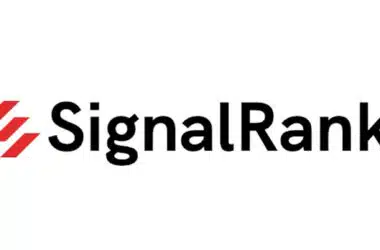
As the cryptocurrency landscape matures, regulations are evolving globally, significantly impacting fintech jobs. This dynamic environment presents both challenges and opportunities for professionals in the fintech industry.
Table of Contents
Regulatory Landscape and Key Changes
Global Developments: The regulatory frameworks for cryptocurrencies differ widely across different regions. The European Union, with its Markets in Crypto-Assets Regulation (MiCA), has implemented comprehensive rules requiring licensing for crypto service providers and rigorous customer verification processes. These measures aim to protect investors and prevent illicit activities such as money laundering and terrorism financing.
In Asia, the regulatory approaches are diverse. Japan recognizes cryptocurrency as legal property and enforces strict regulations to combat money laundering. Conversely, China has imposed stringent bans on crypto trading and mining, reflecting a cautious stance towards digital assets. South Korea is progressing with legislation aimed at enhancing transparency and user protection in crypto transactions.
In the United States, the regulatory environment is fragmented, with different agencies like the SEC, CFTC, and FinCEN imposing varied requirements. The SEC has categorized cryptocurrencies as securities, whereas the CFTC has categorized them as commodities. This complexity is compounded by state-level regulations, which further diversify the regulatory landscape.
Impact on Fintech Jobs
Compliance and Legal Expertise: The growing complexity of crypto regulations increases the demand for compliance and legal professionals in fintech jobs. Crypto is decentralized but that does not mean that it has to be deregulated. The last decade or so has shown that crypto cannot remain fully deregularized because of scams. Which is why the need for compliance and legal expertise in crypto startups is growing, these roles involve ensuring that companies adhere to regulatory standards, conducting risk assessments, and developing anti-money laundering (AML) programs. Professionals with expertise in navigating these regulations are crucial for fintech firms to operate legally and effectively.
Cybersecurity and Risk Management: Cybersecurity experts are needed to safeguard digital wallets, protect transaction data, and prevent unauthorized access. Additionally, risk management professionals play a pivotal role in identifying potential regulatory risks and implementing strategies to mitigate them.
Innovation and Development: Regardless of the regulatory challenges, there is significant scope for innovation within the fintech sector. Developers and engineers are tasked with creating compliant blockchain solutions and digital wallets that meet regulatory requirements while offering secure and efficient services. These roles are critical in adapting to new regulations without stifling technological advancements.
Market Analysts and Strategists: The fluctuating regulatory landscape influences cryptocurrency market dynamics, requiring market analysts to stay updated with regulatory changes and their implications. Strategists must develop business models that align with evolving regulations while exploring new opportunities for growth and investment.
Case Study: QuadrigaCX
One notable example of a company facing significant issues due to a lack of expertise or internal controls in crypto regulations is QuadrigaCX. The Canadian cryptocurrency exchange collapsed in 2019 after the sudden death of its founder, Gerald Cotten. Cotten was the only person with access to the company’s cold wallets, leading to the loss of approximately $190 million in user funds. The lack of regulatory oversight and internal controls contributed to this failure, highlighting the critical need for compliance and risk management expertise in fintech jobs.
Key Areas of Focus for Fintech Compliance
- Licensing and Registration: Fintech companies must comply with jurisdiction-specific licensing and registration requirements to operate legally and maintain operational standards.
- Consumer Protection Laws: Regulatory frameworks like GDPR and CCPA enforce strict data protection and privacy measures, ensuring that fintech companies handle consumer data responsibly and transparently.
- Anti-Money Laundering (AML) Compliance: Implementing robust AML programs is essential to prevent the misuse of financial services for illegal activities. This involves customer due diligence, transaction monitoring, and regular reporting to regulatory authorities.
- Cybersecurity Measures: Fintech companies must implement strong cybersecurity protocols to protect sensitive data and maintain system integrity. Compliance with standards like PCI DSS and ISO/IEC 27001 is critical for safeguarding financial information.
- Cross-Border Compliance: Expanding fintech operations internationally requires adherence to diverse regulatory frameworks across different jurisdictions. Fintech companies must stay updated on regulatory changes and collaborate with local regulators to ensure compliance.
Education and Skills for Fintech Jobs
To land a role in fintech jobs, particularly those impacted by evolving cryptocurrency regulations, aspirants can consider the following areas of study:
- Finance and Economics: A strong foundation in finance and economics is essential for understanding market dynamics and financial regulations.
- Law and Compliance: Courses in financial law, regulatory compliance, and anti-money laundering practices are crucial for compliance and legal roles.
- Computer Science and Cybersecurity: Expertise in computer science, with a focus on cybersecurity, blockchain technology, and data protection, is vital for technical roles.
- Data Analysis and Statistics: Proficiency in data analysis helps in market analysis and strategy development, essential for adapting to regulatory changes.
- Business and Management: Knowledge in business management, particularly in the context of financial services, aids in navigating regulatory landscapes and driving innovation.
Famous People in the Fintech and Cryptocurrency Sector
Brian Armstrong: CEO and co-founder of Coinbase, one of the largest cryptocurrency exchanges in the world. Armstrong has been a vocal advocate for sensible regulation and mainstream adoption of cryptocurrencies.
Changpeng Zhao (CZ): Founder and CEO of Binance, the world’s largest cryptocurrency exchange by trading volume. Zhao has played a significant role in shaping the crypto trading landscape and navigating regulatory challenges globally.
Caitlin Long: Founder and CEO of Avanti Financial Group, a digital asset bank. Long is known for her work in blockchain technology and her efforts in advancing crypto-friendly regulations.
Christine Lagarde: President of the European Central Bank, Lagarde has been influential in shaping the EU’s approach to cryptocurrency regulation, particularly with initiatives like MiCA.
Hester Peirce: A commissioner at the U.S. Securities and Exchange Commission (SEC), Peirce is often referred to as “Crypto Mom” for her supportive stance on cryptocurrencies and her advocacy for clearer regulatory frameworks.
Future Outlook
The future of cryptocurrency regulation is set for continued evolution. Regulators aim to balance the need for innovation with the imperative to protect consumers and maintain market integrity. This ongoing development will likely create new job roles focused on regulatory technology (RegTech), further integrating compliance into the fintech infrastructure.
In conclusion, as cryptocurrency regulations evolve, fintech professionals must adapt to new roles that emphasize compliance, cybersecurity, innovation, and market analysis. This dynamic field offers numerous opportunities for those equipped to navigate the complex regulatory environment, ensuring that fintech companies can thrive while adhering to stringent regulatory standards.


















Recent Comments